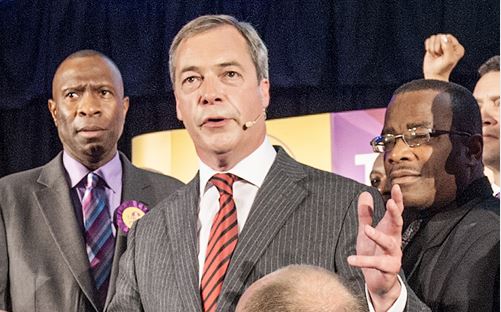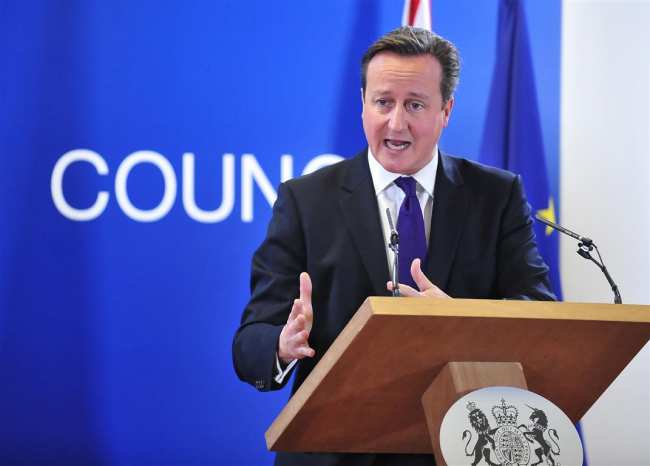Britain is heading for a new political landscape as Ukip opened accounts across the country which helps them to foothold in the parliamentary segments for 2015 campaign.
 As the counting enters its final phase, the opposition Labour Party is on top with 31 per cent followed by Conservatives’ 29 per cent. Labour gained about 290 seats but the political pundits are predicting the gain is enough to reap a parliamentary majority in the 2015 elections.
As the counting enters its final phase, the opposition Labour Party is on top with 31 per cent followed by Conservatives’ 29 per cent. Labour gained about 290 seats but the political pundits are predicting the gain is enough to reap a parliamentary majority in the 2015 elections.
Prime Minister David Cameron already revealed his intention to fight the general election in the grounds of economic stability. He is also planning to toughen the immigration and benefit rules.
Despite the dramatic performance, anti-immigrant Ukip vote share fell by six points compared with last year, from 23% to 17%, according to BBC calculations. Experts identified Ukip polling 20% in most of the country but just 7% in London. The Liberal Democrat vote fell by one point to 13% while David Cameron’s leadership was stabilised as the Tory vote increased by four points to 29%.
It was estimated that this would translate into 322 seats for Labour at a general election, 255 for the Conservatives, 45 for the Lib Dems and other parties, including Ukip, 28 seats.
Miliband was criticised for a series of media mishaps during the campaign, which was described as “tremendously ill-judged” by one backbencher. He failed to recognise a local leader besides remember the price of a pint of milk. The party was campaigning on the Living Cost Rise.
Some shadow cabinet members say they were crowded out of a campaign that failed to project Labour as a team that includes strong women such as Harriet Harman and Yvette Cooper, the Guardian reported. “There is also anger that Miliband focused too much on policy rather than projecting an empathy with voters’ sense of alienation from the political class,” they said.
Labour achieved nearly 300 council seat gains – well above its forecast of 200 – as it secured important victories by winning control of Hammersmith and Fulham, Croydon, Harrow and Amber Valley from the Tories. But the gain in seats was well behind the 490 identified by the psephologists Michael Thrasher and Colin Rallings as the number required to show that it is a potentially winning force.
The Tories lost nearly 200 seats but managed to wrest control of Kingston upon Thames from the Lib Dems.
A Guardian analysis showed that the Lib Dems are on course to lose 20 of their parliamentary seats – nearly a third of the total – in what would be a blow to the authority of the deputy prime minister. But it would avoid what is being described as the “nuclear wasteland” in which the party would lose two thirds of its seats to take it down to the 20 seats it won in 1992.
 Nigel Farage id Ukip had broken the political mould and was on course to win seats in parliament next year. “The Ukip fox is in the Westminster hen house. There are areas of the country where now we have got an imprint in the local government. Under the first-past-the-post system we are serious players.”
Nigel Farage id Ukip had broken the political mould and was on course to win seats in parliament next year. “The Ukip fox is in the Westminster hen house. There are areas of the country where now we have got an imprint in the local government. Under the first-past-the-post system we are serious players.”
Cameron said he understood the message from the voters, who he said wanted the government to work harder on issues such as welfare and immigration reform. “We will be working flat out to demonstrate that we do have the answers for hardworking people,” he said.
The prime minister rejected calls from Eurosceptic Tories to form a pact with Ukip before next year’s general election. He told Sky News: “We are the Conservative party. We don’t do pacts and deals. We are fighting all-out for an all-out win at the next election.”
The European election results are due on Sunday night.